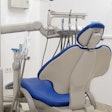A deal announced Thursday by AFL-CIO President Richard Trumka would exclude dental benefits from a proposed tax on expensive health insurance plans in the United States.
"This is a major victory for oral health advocates as it guarantees that employers will not be tempted to stop offering dental insurance to their employees in order to fall below the taxable amount," said the Children's Dental Health Project in a news alert.
The deal also raises the threshold for the 40% "Cadillac" tax from $23,000 to $24,000 for families and from $8,500 to $8,900 for individuals. Although insurance companies would be required to pay the tax, they are expected to pass the cost onto employers and workers so labor unions have opposed it.
Several oral health organizations have also spoken out against the proposed tax, which is included in a version of healthcare reform legislation passed by the U.S. Senate.
According to Trumka, the thresholds would go up in 2013. Dental and vision costs would be exempted starting in 2015. Health plans covered by union contracts would escape the tax altogether until 2018, the threshold would be indexed to 1% above the rate of inflation, and there would be additional reductions for plans covering large numbers of women or the elderly.
The tax was envisioned not only as a way of raising money to pay for subsidizing healthcare for the uninsured but also as a way of controlling the cost of healthcare in the United States. Some health economists have argued that high-cost healthcare plans encourage spending without improving health.
Trimming back the tax would reduce the $150 billion it would have raised by about $60 billion, according to news reports. That leaves the White House and Congress scrambling for ways to make healthcare legislation pay for itself. The U.S. House of Representatives version of healthcare reform raises its money with a new tax on individuals earning more than $500,000 and couples earning more than $1 million.















